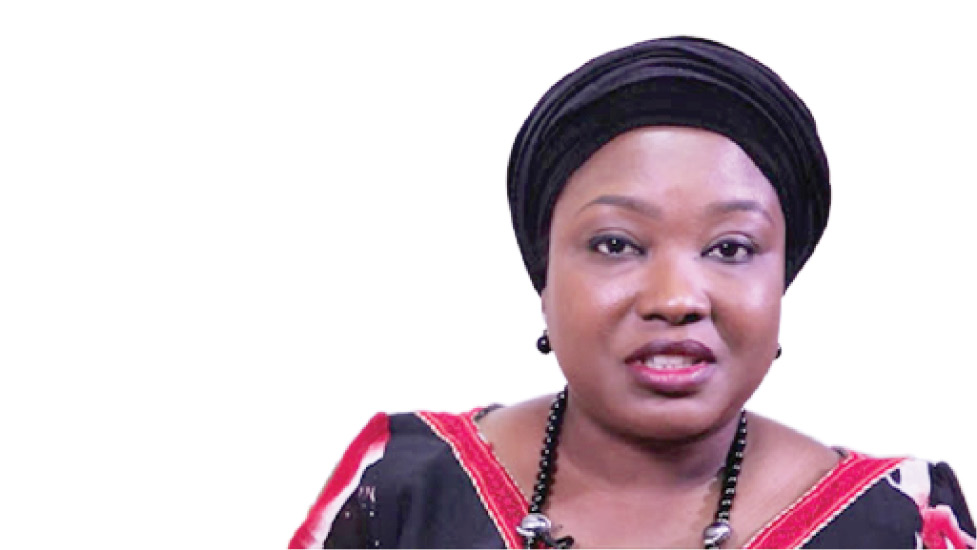Nigeria loses $3bn annually to illegal gemstone trade — Gemologist Muhammed-Oluyede
Mrs Jummai Muhammed-Oluyede, an alumna of the Gemological Institute of America (GIA), in this interview talks about how Nigeria is losing three billion dollars annually through illegal trade in gemstones. She also says the African Gems and Jewellery Exhibition Seminar (AGJES) has helped to promote the potentials in the continent’s gemstones/precious stone mining industry. […]

Mrs Jummai Muhammed-Oluyede, an alumna of the Gemological Institute of America (GIA), in this interview talks about how Nigeria is losing three billion dollars annually through illegal trade in gemstones. She also says the African Gems and Jewellery Exhibition Seminar (AGJES) has helped to promote the potentials in the continent’s gemstones/precious stone mining industry.
What is Nigeria losing through illegal trade in gemstones in the country?
There is about three billion dollars leaving the country annually through illegal trade in gemstones. That means that it’s not being declared. For instance, if you want to take gemstones abroad, you want to get an export licence from the Ministry of Mines and Steel Development. You pay your royalties. Now that is not what is happening. What is happening is really not enough. So, a lot of money is leaving the country and then, most of the people sell raw stones, not that which is cut and polished.
So what African Gems and Jewellery Exhibition seminar (AGJES) is trying to do is to encourage the gemstone miners to bring the raw ones and get them polished and made into jewellery. It’s a marriage of the gemstone miners and marketers as well as of the jewellers themselves. With that they can promote the industry and increase activities in it, such as job creation and more.
Because of what we did last year, more people are getting interested and the industry is opening up; many companies have started doing faceting, institutions have started teaching gemology and so on. There is a lot happening.
How can women benefit from the gemstone business/industry?
If you look at it, the gemstone industry is mainly for women. Most women wear more jewellery than men. At the AGJES, it’s mainly women and youth advocacy. There are also many women miners that are into gemstone mining. We need to support these women with tools, equipment, education on how to mine the right way, because how you bring out the gemstone is also important.
I promote jewellers. I have an online store called strelitzia jewelrry.com and I promote gemstone dealers.
At AGJES, we give them platform to sell. And people will get to know them and transact business with them afterwards. Also, we bring out jewellers so that people will know that we have these things in Nigeria and they can come and buy.
But a lot of what happens now is that when people get gemstone, they take it abroad and sell. What we are trying to encourage now is that they add value and sell in Nigeria.
How do you think we can add more value to the gemstones?
What I am wearing is topaz from Kogi State. It was raw but they cut and polish it and made it into jewellery. If you are to sell, you should not sell in small pieces, but as jewellery; that is add value and then you sell it more. This way it’s more attractive to international buyers as opposed to just selling the gemstone. People that buy the raw gemstone take it abroad and add value.
Do you think we have equipment to add value to the gemstones?
Some of the equipment are bought from abroad; some are locally manufactured, but not much. Like in many other manufacturing industries, you bring in the equipment from other countries and then manufacture.
How much revenue do you think Nigeria can general from this industry?
If you have about 3 billion dollars flight out of the country annually, we can start there. If you are able to retain that $3 billion in the country, that is a good start. The market is a 120 billion dollars industry worldwide. And India is the biggest. So it’s a huge industry. If you can get 5 per cent of that market, it’s incredible. About 30 per cent of the gemstone in Thailand is from Nigeria. Look at Sri Lanka, US, Europe.
How do you think government can harness this?
That is what we are doing. We are working with the Ministry of Mines and Steel Development. The ministry has been supporting us and that is commendable. There has been support from the ministry for organisations like ours. They support us to make sure that the seminar is a success.
The more people know about the opportunities in the gemstone business, the more they will get from the business and the better for everybody.
For a Nigerian that wants to invest in the industry, what will be your advice?
I will say come to AGJES which is holding today and tomorrow at the NAF centre, Abuja and learn about the business. When you come, you have jewellers, you have schools. You will be able to learn and know where to start from and how to go about the business.
How do we heal Africa through gemstone?
What we are saying is that if there is increase in productivity, you will eradicate poverty. There will be job creation, and the economy will grow.
What we are saying is that if we are able to get this gemstone, increase the value and get the income stay at home, that will help the economy grow; that will help the economy to be healthy. If the country is benefitting, the people will benefit.
